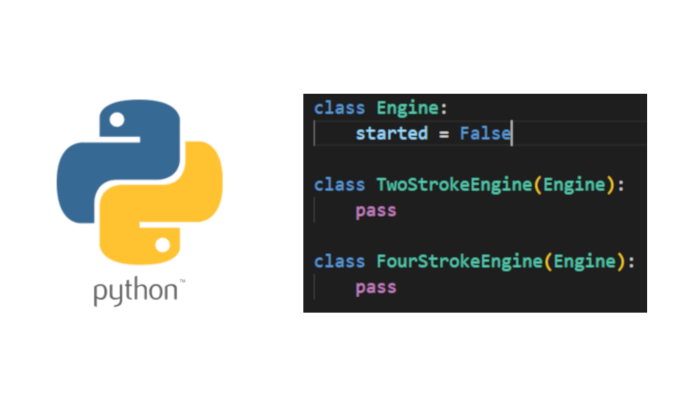We will look at the following three (3) behaviours:
-
From the Python official documentation:
9.4. Random Remarks
If the same attribute name occurs in both an instance and in a class, then attribute lookup prioritizes the instance.
https://docs.python.org/3/tutorial/classes.html: - Setting the value of a class attribute via the class will propagate the new value to class instances, whom have not overridden the value of this class attribute. This is in conformance with the documentation above.
- Setting the value of a class attribute via the class will propagate the new value down to child classes, but no vice versa.
Let’s explore these points via examples.
❶ Attribute lookup prioritises the instance.
This is an example from the documentation page quoted above, I have tweaked it a tiny bit.
class Warehouse:
purpose = 'Storage'
region = 'west'
Then:
w1 = Warehouse()
print("1: ", w1.purpose, w1.region)
Output — these are default class attributes’ values:
1: Storage west
w2 = Warehouse()
w2.region = 'east'
print("2: ", w2.purpose, w2.region)
We just instantiate an instance of Warehouse, then override the
value of the region attribute with 'east' (*):
2: Storage east
— (*): please note, what I’ve just written
above might not be correct… According to the quoted documentation,
the statement w2.region = 'east' might actually mean assigning
the new attribute region to instance w2, rather
than override as I’ve written.
❷ Setting the value via class propagates the new value to instances whom have not provided their own value.
We continue with examples in ❶:
Warehouse.region = 'north'
w3 = Warehouse()
print("3: ", w3.purpose, w3.region)
Instance w3 is created with whatever the class attributes’
values of Warehouse class:
3: Storage north
Setting Warehouse.region = 'north', how does this affect
the existing two (2) instances w1 and w2?
print(f"4: w1.region: {w1.region}, w2.region: {w2.region}")
4: w1.region: north, w2.region: east
w1 has not set its own value for the region attribute,
setting the new value via the class Warehouse does propagate
back to instance w1. w2, on the hand, has set its
own, so it was not affected.
❸ Setting the value propagates from the parent class to child classes, but not vice versa.
Consider the following classes:
class Engine:
started = False;
class TwoStrokeEngine(Engine):
pass
class FourStrokeEngine(Engine):
pass
In their initial state, started is False
for all classes:
print(f"1. Engine.started: {Engine.started}")
print(f"1. TwoStrokeEngine.started: {TwoStrokeEngine.started}")
print(f"1. FourStrokeEngine.started: {FourStrokeEngine.started}\n")
1. Engine.started: False
1. TwoStrokeEngine.started: False
1. FourStrokeEngine.started: False
Let’s set Engine.started to True:
Engine.started = True
print(f"2. Engine.started: {Engine.started}")
print(f"2. TwoStrokeEngine.started: {TwoStrokeEngine.started}")
print(f"2. FourStrokeEngine.started: {FourStrokeEngine.started}\n")
2. Engine.started: True
2. TwoStrokeEngine.started: True
2. FourStrokeEngine.started: True
Let’s switch Engine.started back to False:
Engine.started = False
print(f"3. Engine.started: {Engine.started}")
print(f"3. TwoStrokeEngine.started: {TwoStrokeEngine.started}")
print(f"3. FourStrokeEngine.started: {FourStrokeEngine.started}\n")
3. Engine.started: False
3. TwoStrokeEngine.started: False
3. FourStrokeEngine.started: False
Let’s set FourStrokeEngine.started to True:
FourStrokeEngine.started = True
print(f"4. Engine.started: {Engine.started}")
print(f"4. TwoStrokeEngine.started: {TwoStrokeEngine.started}")
print(f"4. FourStrokeEngine.started: {FourStrokeEngine.started}\n")
4. Engine.started: False
4. TwoStrokeEngine.started: False
4. FourStrokeEngine.started: True— We can see that, setting the value propagates from the parent class to child classes, but not vice versa.
What about their instances? Continue on with the examples above:
"""
FourStrokeEngine.started is True from above.
"""
engine = Engine()
two_stroke_engine = TwoStrokeEngine()
four_stroke_engine = FourStrokeEngine()
four_stroke_engine1 = FourStrokeEngine()
print(f"5. engine.started: {engine.started}")
print(f"5. two_stroke_engine.started: {two_stroke_engine.started}")
print(f"5. four_stroke_engine.started: {four_stroke_engine.started}")
print(f"5. four_stroke_engine1.started: {four_stroke_engine1.started}\n")
Engine.started = True
print(f"6. engine.started: {engine.started}")
print(f"6. two_stroke_engine.started: {two_stroke_engine.started}")
print(f"6. four_stroke_engine.started: {four_stroke_engine.started}")
print(f"6. four_stroke_engine1.started: {four_stroke_engine1.started}\n")
Output:
5. engine.started: False
5. two_stroke_engine.started: False
5. four_stroke_engine.started: True
5. four_stroke_engine1.started: True
6. engine.started: True
6. two_stroke_engine.started: True
6. four_stroke_engine.started: True
6. four_stroke_engine1.started: True
Let’s set TwoStrokeEngine.started to False,
and see what happens to existing instances:
TwoStrokeEngine.started = False
print(f"7. engine.started: {engine.started}")
print(f"7. two_stroke_engine.started: {two_stroke_engine.started}")
print(f"7. four_stroke_engine.started: {four_stroke_engine.started}")
print(f"7. four_stroke_engine1.started: {four_stroke_engine1.started}\n")
7. engine.started: True
7. two_stroke_engine.started: False
7. four_stroke_engine.started: True
7. four_stroke_engine1.started: True
It makes sense that only two_stroke_engine.started was affected.
I did get caught out on some of these issues… And hence this post. I do hope you find this post useful. Thank you for reading and stay safe as always.

